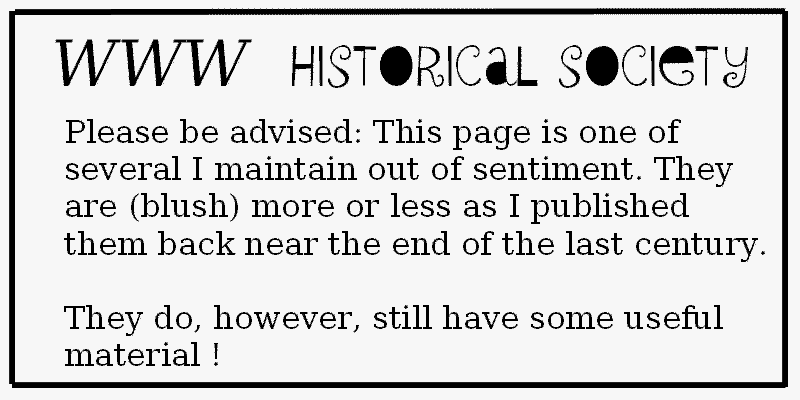

In searching for pages to put into my 'Best Homepages' competiton, I have come across some things that I prefer not to encounter in websites.
I hope here to address a few areas, and also to alert readers to things that may not be obvious to them because they will probably seen only a few of the web-browsing systems which exist. A web site that is great with a Pentium, Netscape and ISDN may not work so well with different access opportunities.
I don't like mysteries. I don't like having to stuggle to find out what a site has to offer. I don't like my time used up waiting to things to download.
The BEST websites, as far as I'm concerned, have a clear, relatively short homepage which is equivalent to a good table of contents in a book. The links have informative titles along the lines of 'Picture of my Dog', rather than 'Really Cool Pic'. (I'm even happier if the site mgr has found something more interesting, to me, than his dog... but I don't mind Fido's presence... as long has waiting for him to download is optional. (My homepage is getting too big! Sorry!)
The following... which makes sense to me, on the whole, was kindly submitted by a reader....
I want to mention that I find the following characteristics tiresome (not just in this contest, but in the hundreds of homepages I've browsed elsewhere, also): (1) too damn many inconsequential graphics like rainbow lines, cute balls and icons, etc. A browser like Netscape has a bad habit of not showing you ANYTHING until it has processed a fair number of these diddles, and on a busy server it takes too long to get any clue what the page is about. In this regard, I prefer SPRY Mosaic, since you can at least be reading the text while the graphics are loading. (2) graphics that are too big, yet are included as INLINE images! Make the big time-consuming gifs optional, folks! They should be external links, not inline images. (3) obligatory links to just about everything else under the sun, just for the sake of looking "cool". Links to friends or something relevant to the homepage's author are good, but not all the rest of the garbage links. If I'm visiting your page, I may be interested in following a link to your friend, relative, employer, or a hobby you're involved with - things that give me a better sense of YOU. I don't go to your homepage to link to the Weather Service, the Dilbert Cartoon, or to download Netscape. (4) this one really fries me: links that are indentified only in a graphic image, such as a row of buttons or icons that MUST be loaded before you even have a clue where they link to. And if an author commits sins (2) and (4) in the same page, I won't even finish loading it - it's crossed off my list, never to return. Taking sin (4) to the extreme is those clickable image maps where you click on certain parts of a graphic to link to different places. If they're not accompanied by an alternative text index to achieve the same links, I'm outta there. Surfing web pages is such a time-waster. I prefer pages in which I can quickly get a sense of whether I'm even interested in it or not.Here is how you can contact this page's author, Tom Boyd.